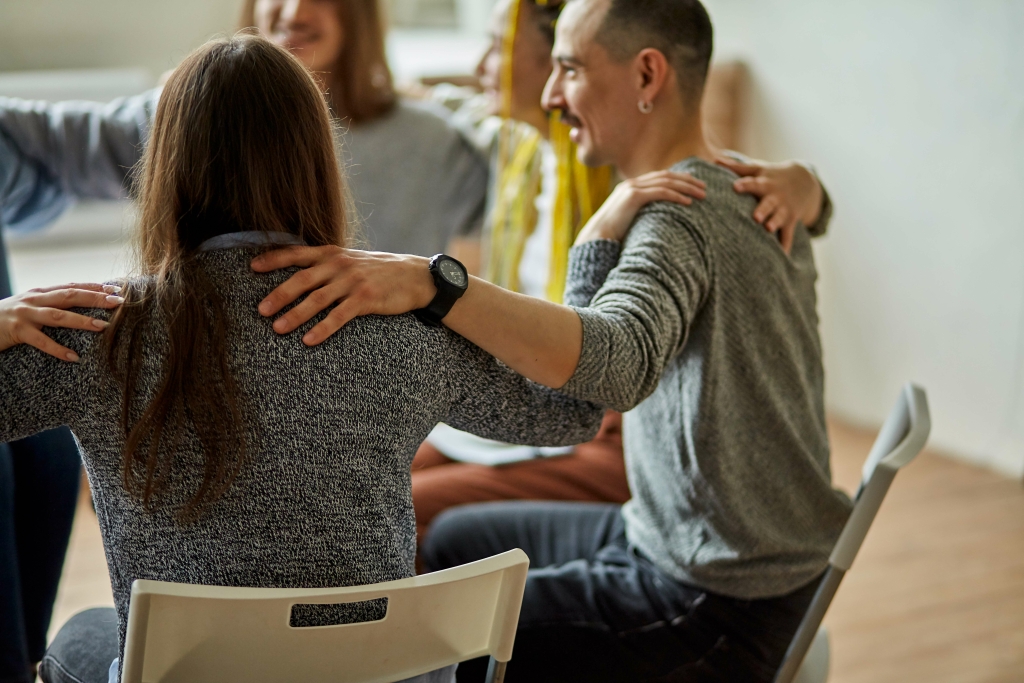You might guess we will be dealing with spirituality in-depth in a future session, and you would be right. However, the past cannot just be ignored; the pain was genuine to them every day while the user just ‘checked out,’ leaving the family members holding the bag for a whole host of problems. They truly want to believe that it is all over but have genuine concerns about it. Whatever you do, say, or think should be geared towards improving your self-esteem. Take further studies to hone your knowledge and skills, learn a new language, take up cooking classes, start a new hobby.

The Integral Role of Support Groups in Achieving Lasting Sobriety
The second is power, i.e., an agent must have the (potential) power to affect other entities, although this potential may not be realized in all (or any) of the ways intended, e.g 25, 26. The exertion of such power may be any action (including an intentional omission of action), either mental or physical, with the potential to move one nearer to achieving one’s goal 20. The third is an object, i.e., the concept describes a relationship between a subject with intentionality and power and an object of the intentionality that is (potentially) affected by the exercise of power.
How Online Therapy Is Transforming Access to Mental Health Support
- If an individual already has pre-existing conditions like depression, bipolar disorder, and anxiety, unhealthy relationships can worsen the symptoms.
- Recovery is a profound personal journey that significantly affects relationships.
- See a certified medical or mental health professional for diagnosis.
- American Addiction Centers (AAC) is committed to delivering original, truthful, accurate, unbiased, and medically current information.
In the current data, support for relatedness was presented as relevant for recovery-related agency in at least two ways. First, participants expressed appreciation for service interactions in which their need for relatedness was met. When an empathetic other was available, participants described empowerment (sustained agency) or an experience of being safer even when they continued to feel powerless (contained non-agency). Second, participants often critiqued services for not providing enough support for recovery tasks pertaining to needs of relatedness 29, 30. Such recovery tasks included forming a safe therapeutic alliance, resolving conflicts in significant relationships and (re-)connecting with loved ones or peers.

Establishing boundaries

I thought I would look crazy on the video, but it turned out that it was really clear what had led up to the suicide attempt … So it all kind of fell into place, because I hadn’t realized what the suicide attempt was all about. Don’t get me wrong, your family wants to believe you, but what they are really looking for is a guarantee. One family member describes it to me as being on a roller coaster; they would see progress get their hopes up high only to see them slide downhill into oblivion. Recognize that you are https://podarkiwsem.ru/esthetic-house-korejskaya-kosmetika-dlya-krasoty-volos/ a unique individual with a different set of talents and that you have something to contribute. You may not be a big celebrity like Justin Timberlake, as rich as Bill Gates, or as powerful as Oprah Winfrey. Still, your individuality makes you as important as they are, with as much right to exist and make something of yourself.
Distorted Communication
Through dedicated efforts, it is possible to mend the wounds caused by addiction and forge stronger, more resilient connections rooted in trust, communication, and mutual support. Researchsuggests that family support is a crucial part of a person’s recovery. The same way that addiction can destroy friendships, it can also impact relationships with loved ones. Family members may lose trust because of lies to cover up your addiction, for example.
As individuals engage in support groups, therapy, and community activities, they may encounter like-minded individuals who share similar experiences and aspirations. These new connections can provide additional sources of encouragement, camaraderie, and understanding. By actively cultivating empathy in recovery, http://suicideboys.ru/%d0%b1%d0%b5%d0%b7-%d1%80%d1%83%d0%b1%d1%80%d0%b8%d0%ba%d0%b8/i-went-to-an-online-sex-party-during-the-coronavirus-pandemic/ individuals can nurture healthier relationships, reduce conflicts, and strengthen connections based on understanding and compassion. Through empathy, individuals in recovery can support one another, foster a sense of community, and navigate the complexities of their healing journey with greater resilience and empathy. Rebuilding trust during recovery is a gradual and continual process that requires dedication, honesty, and sincere efforts to mend fractured relationships. By embracing accountability, demonstrating commitment to sobriety, and actively pursuing amends, individuals can pave the way for the restoration of trust and the cultivation of strong, healthy relationships in their journey towards recovery.
- If you need to work on shyness, or being uncomfortable with people, then so be it; let’s start working on it.
- When a loved one attends addiction treatment, begins learning how to stay clean and sober and focuses on reclaiming their life from addiction, their relationships with other people require rebuilding, too.
- Most people see how their relationships impact their quality of life, but sometimes this gets muddied when addiction is part of the picture.
- Still, when we have meaningful relationships to hold onto, it can make all the difference.
- By actively cultivating empathy in recovery, individuals can nurture healthier relationships, reduce conflicts, and strengthen connections based on understanding and compassion.
Additionally, we’ll delve into how incorporating social support into treatment approaches can contribute to long-term sobriety. So, let’s uncover the vital role that supportive relationships play in addiction recovery and building a strong sober community. Developing healthy relationships with oneself is a crucial aspect of addiction recovery. In this section, we will explore the relationship between self-love and recovery, highlighting its impact on the journey towards sobriety.
- Family members or loved ones can be included in the treatment process too.
- This study provides empirical evidence on the influence of urbanization on ecological resilience, offering valuable insights to support urban resilience building.
- Healthy relationships involving honesty, for example, can encourage partners to support or inspire individuals to communicate about substance abuse.
- Rebuilding lost trust can be a priority when repairing connections during recovery.
- In Finland, 66% of those who died by suicide during 2016–2018 had visited healthcare within a month of their death, 46% within the week and 21% on the day of their death 1.
Dual Diagnosis 101: How Mental Health Disorders and Substance Use Disorder Often go Hand in Hand
In turn, structure-providing interventions (e.g., ASSIP’s program and tasks; professionals’ direct questions) were often explicitly cited as making recovery-related action possible 30. All participants reported interactions with services that had enhanced their ability to identify, pursue and/or complete a recovery task, i.e., supported their recovery-related agency. Most also described interactions that had left them without support or even directly hampered their efforts. The context of a specific service or relationship was often presented as providing resources that had facilitated the pursuit or completion of some recovery tasks, while overlooking others.
- Substance abuse and addiction can lead to behaviors that are not helpful to relationships, such as increased self-focus or selfishness, avoidance, persistent irritability, or withdrawal.
- The strain that addiction places on connections with family, friends, and partners can be immense, often leading to feelings of betrayal, hurt, and frustration on all sides.
- Finally, acknowledging service user agency also entails appreciating how any offer of help is inevitably interpreted by and mediated through the subjectivity of the service user.
- By building connections with others who share your goals and values, you create a supportive network that can help you navigate the challenges of recovery and prevent relapse.
- Moreover, the relationship between urbanization and ecological resilience is explored using a geographically and temporally weighted regression model.
- Sharing experiences, discussing challenges, and offering encouragement creates a support network that can make a significant difference in the recovery process.
Patient Care Network
Additionally, therapy, whether individual or couples/family therapy, can offer tailored strategies to address relationship issues and improve communication. Personal boundaries are the physical and emotional limits set by individuals to safeguard their overall well-being. These boundaries are based on personal values and needs, providing guidelines for acceptable behaviors and interactions. When embarking on the journey of recovery from http://kosino-uhtomski.ru/index.php?id=939&pid=8 addiction, establishing healthy boundaries is a fundamental aspect of building and maintaining healthy relationships.
